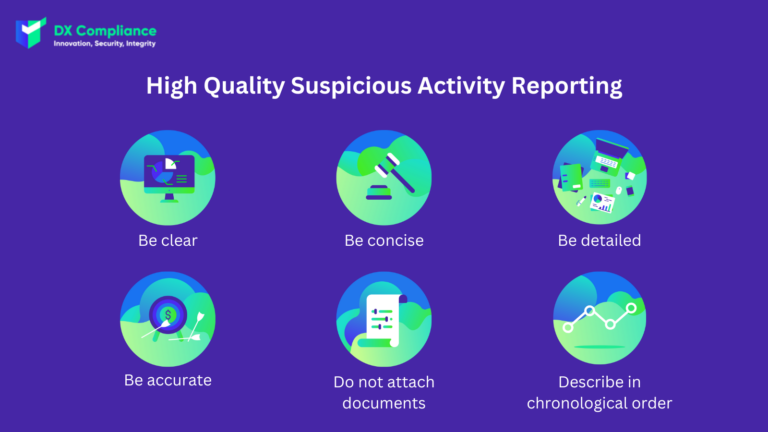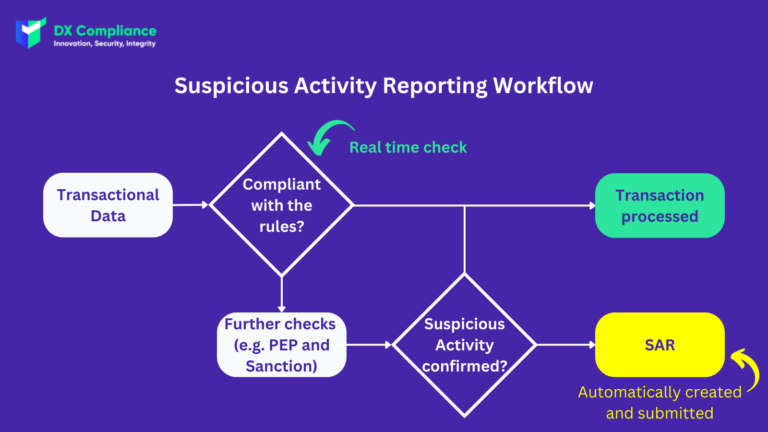9 October 2022, 16:38
Tagline
9 October 2022, 16:38
Tagline
SAR is the shorthand of suspicious activity report (sometimes suspicious transaction report, SAT) – a report that must be submitted to relevant authorities if there is a case of suspected money laundering or fraud.
Thus, these SARs alert law enforcement to potential cases of money laundering or terrorist financing. By doing so, the reports act as a tool to monitor activities in the financial industry that are considered unusual, precursors to illegal activity, or threats to public safety.
By submitting a SAR to the National Crime Agency, you will be complying with any potential obligations you have under the Proceeds of Crime Act 2002 (POCA) in the United Kingdom.
It is important to note that what is needed on SAR is different from territory to territory – and even from institution to institution, so be sure to be informed to be compliant with your perspective regulatory bodies. In addition, failure to report suspicious activities might lead to hefty fines, legal consequences affecting the institution, and even imprisonment.
It is your responsibility as a professional – and as a citizen – to report any suspicious activity. Doing your part will lower the chances of money laundering and terrorist financing offenses in our community, along with combating other forms of consequential crimes.
Suspicious activity reports from financial institutions and other DNFBPs such as lawyers, accountants and real estate agents are an important source of information. Not only for white-collar crime, but also for a wide range of criminal activities. They provide information such as contact details, alias identities, investment activities, bank accounts, and other assets that would not otherwise be available to law enforcement.
Some SARs provide immediate opportunities to stop crimes and arrest criminals. Some contribute to the detection of potential crimes that need to be investigated or provide useful intelligence for the future. But they all contribute to security. Insights from SARs have been able to accomplish many things, such as to combat organized crime, such as mortgage and boiler room fraud. This is because it has enabled detection and prevention measures, including the issuance of alerts to companies at risk from such activities.
In doing so, SARs can also help build a geographic picture or pattern of vulnerability of a particular sector or product. This can be used in analyzing suspicious activity before and after a specific event such as a terrorist incident.
All in all, it is imperative to report all suspicious activity to the relevant authorities to stay compliant, but also to have a record of all offenses. Doing so will document and bring forward the patterns of offenses that might be crucial to catching criminals.
In general, the Suspicious Activity Report must be filed when money laundering or fraud is suspected. But the concrete criteria for filing a SAR are not uniform. They vary from country to country and even from institution to institution and depend on the nature of the suspicious activity and the specifics of the bank or fund.
In the United Kingdom, people working within the regulated sector are required by law to submit a SAR “if they know, or suspect… that a person is engaged in, or attempting, money laundering or terrorist financing” through their work according to the National Crime Agency.
However, you might be obligated to submit a SAR even if you are not working within the regulated sector or else you may be breaking the law. Seek legal advice independently or through your professional body if you are unsure.
As already mentioned in the section on the relevance of SARs, it is not only banks that are obliged to report. They include a variety of other financial industry organizations, such as:
However, DNFBPs are also required to report suspicious cases. These include, for example:
Overall, it can be said: If there is a possibility of money laundering, tax evasion or financing of crime in the day-to-day operations of the entity, the organization and its employees must be aware of the rules and regulations for reporting suspicious activity.
In the United Kingdom, SAR is made to The National Crime Agency through the SAR Online System.
You should make a SAR “as soon as you ‘know’ or ‘suspect’ that a person is engaged in money laundering or dealing in criminal property” according to the National Crime Agency.
The quality of your SAR matters. Poor quality reports mean delays in processing and unnecessary issues when the case is taken to court. However, a high-quality SAR means fast-tracked processing of the report – and gives the Agency with adequate amount of information to make its decision to investigate the case or not.
When writing a SAR, include as much detail as you can – even if it seems irrelevant as it could become a valuable piece of information.
If persons are concerned, be sure to include the following information to avoid misidentification of people:

Remember, missing or inaccurate information:
For more information, please consult UK Financial Intelligence Unit’s Guidance on Submitting Better Quality Suspicious Activity Reports (SARs).
Filling out a suspicious activity report can take a lot of effort. Therefore, automating the process helps to work more efficiently and to be able to use the free resources in other parts.
With DX Compliance, SARs take minutes instead of close to an hour to complete. In the automatic transcription of information between DX’s integrated case management tool, the preparation and filing of a SAR is reduced to, on average, a 2-minute task.
DX automates the SAR process, eliminating human error and ensuring that you are submitting high-quality SARs whilst always staying compliant. Currently it is integrated to FIU’s in the UK, Germany, Luxembourg, Ireland, UAE and Switzerland and USA, Canada, Singapore, Hong Kong and Australia.
Completely automated SAR reporting process generates a SAR the moment an analysis close’s and reports a suspicious case. The automated report has the exact required format enabling it to be directly sent to the regulator used. This eliminates the manual filling of reports and the human error associated with the manual process.
The document can also be downloaded as a PDF for your records.

DX Compliance is an AML and Compliance firm helping our clients identify, prevent and report financial crime. DX Compliance help Banks, FinTech’s and Payments Providers to continually monitor their risk and detect the threat of money laundering to ensure compliance and reduce fines.
One core part of that is Suspicious Activity Reporting. After detecting these activities through Transaction monitoring, the report can be submitted automatically to work as efficient as possible.
Curious? Please contact our experts!

08.08.2022
An overview of recent AML developments in the UAE.
Get access
15.10.2021
The introduction of 6AMLD regulations aims to reduce financial crimes.
Get access
27.07.2021 AML Compliance
Uncovering the PEP and Sanctions Lists and Global Regulation
Get access